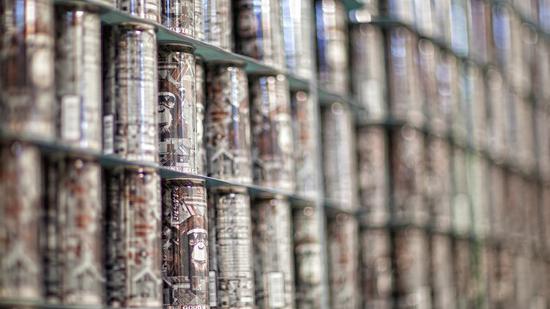In early October, Infinite Monkey Theorem will become the first Colorado winery to open a satellite location out of state, using Texas grapes to produce and sell wine in the capital city of Austin.
While the move can be seen as both bold and risky, it also could be considered almost old-hat for Ben Parsons, the 39-year-old founder of the Denver winery who has broken down perceived barriers against both canning and kegging wine since IMT opened in 2008.
And in doing so, he’s built his winery to the point where it will be the largest producer in the Centennial State by the end of 2015.
“I think it’s the innovative approach, taking a product that’s fairly stoic — some might say pretentious — and turning it on its head and making it relevant,” Parsons said. “I think the can especially is something the American consumer can relate to, because they’ve grown up drinking everything else out of cans.”
And soon the product in IMT’s cans will be made in two different states, a move that turns on its head the traditional idea that wineries grow by expanding their vineyards or acquiring competitors but keep their home base in one location.
Infinite Monkey Theorem’s Austin location will use grapes grown in the nearby Hill Country region of Texas, a locally revered by nationally overlooked area that’s spawned many of the 289 wineries operating in Texas. The company just hired a wine maker specifically for that state and dispatched its CFO to Austin earlier this year, emphasizing that this is a major investment rather than a minor dalliance in a city with similar demographics to Denver’s.
In fact, if IMT is well received in its second home base, Parsons said he will use it as a model to expand to other hip, growing metropolitan areas. He is already looking at Nashville, Los Angeles, Portland and Minneapolis as future opportunities for winery locations for the company that has its products sold in 37 states.
“This is the first opportunity to prove it could be somewhat of a turnkey operation where we choose select cities and go in there and make the brand,” he said.
Such experiments have helped the winery grow so far from an operation that produced 2,000 cases in its first year to an expected 50,000 by the end of 2015.
It announced on Sept. 1 that its four canned wines would be sold in Whole Foods Market in 10 states, and Parsons said in a Sept. 3 interview that he’d learned earlier in the day that Target had agreed to sell its Dry Hopped Pear Cider cans in a total of 360 stores in seven states.
While the canning has blown up — Parsons is looking for a new 20,000-square-foot facility to move his canning line into and to expand from a 35-cans-per-minute machine to one that can fill 100 cans per 60 seconds — his kegging operation is just starting to pick up steam after he helped to pass a state law in 2014 to allow wineries to keg and distribute other vintners’’ products.
About 10 out-of-state wineries have contacted him about kegging their wines for the Colorado market, and IMT recently began importing two Italian wines for the same purpose.
Not content with the boundaries he’s already pushed, however, Parsons is about to launch one of first sparkling wines ever to be made in the state as well. He plans to debut it Friday at a James Beard dinner he is hosting.
Where he and IMT go next is less a matter of fulfilling specific goals and more an as-of-yet-unforeseen product on his constant need to look at the wine industry and determine where things need to be changed, he added.
“The pressure is definitely to deliver on everything we’ve talked about and to follow through,” Parsons said. “But our innovativeness is more driven by curiosity than by ‘Oh, we have to find something else.’”
